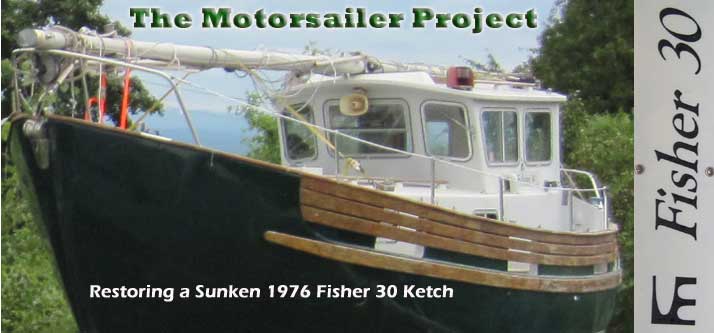Project Log: Friday, August 19, 2011
Next on the dinette project agenda was to insulate and
close off the backs of the new locker spaces. This
was a cheerless task made endurable only with the
knowledge that the sooner I got it done, the sooner it'd
be done. I couldn't proceed with the actual
backrest/shelf installation till several additional
installations were completed within the lockers
themselves, starting with the insulation and back
panels.
To begin, I laid out and measured for a series of
hardwood cleats at the back sides of the three lockers.
The back panels of the lockers, which I'd build from
1/4" cherry plywood, would rest against these cleats,
and the space within would contain rigid foam insulation
and an air space against the hull.
The hull was relatively flat and vertical in these
areas--except for the forwardmost of the three
lockers--so I decided to keep the installation as simple
as possible by using straight cleats equally spaced from
the inboard (backrest) side of the lockers, at least for
the aft and middle lockers. Doing this would make
the installation easier, as the panels would be planar
and rectangular and parallel to the backrest, but at the
(in this case minimal) expense of a few cubic inches of
locker space. However, this would also ensure a
natural air space between the foam insulation and the
hull, adding to its effectiveness.
The hull shape in the forward locker was less than
straight, and to maintain the parallel cleat design
would have wasted far too much space and been foolish,
so in this locker I allowed the cleats to more closely
mirror the shape of the hull. This would slightly
complicate the design of the back panel, as the angle
involved meant that the panel would have to be a
parallelogram/trapezoid rather than a rectangle.
In each locker, I drew layout lines, measured for the
cleats, cut the cleats (following the same 10° angle as
the backrest), and installed the cleats with glue and
bronze screws. |
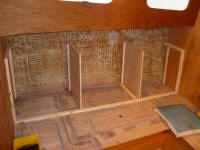
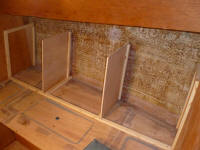 |
Next, I took measurements and cut 1/4" cherry panels to
fit each of the spaces. The panel for the forward
locker, with its misaligned cleats, required a few
additional layout marks, scribes, and cuts to fit
properly, reinforcing my decision to keep the other two
panels simple rectangles. |
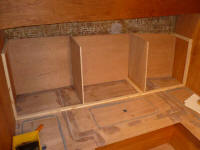
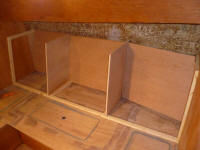 |
With the panels and support cleats complete, I painted
the area behind the panels, plus the unfinished plywood
bottoms of the lockers and the back sides of the new
panels. Later, I'd varnish the panels and other
areas of the lockers for protection and general
appearance.
Even though these areas would be hidden from view, and
would contain insulation, I chose to paint because I
felt that painted interior surfaces stayed naturally
cleaner and free of the contaminants that cause moisture
retention, with all its negative effects. |
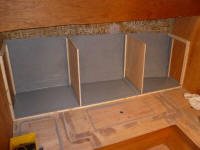
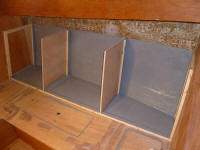
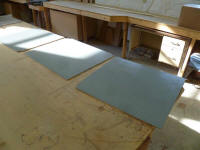 |
Next: insulation, panel installation, and some
shelves...then finally the backrest installation.
|
Total Time Today: 3.25 hours
|
<
Previous | Next > |
|
|
